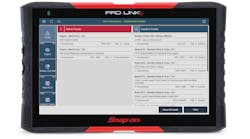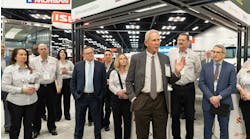Volvo Trucks North America (VTNA) has announced its Environmental Protection Agency (EPA) 2010 emissions reduction technology using selective catalytic reduction (SCR) will carry a surcharge of $9,600.
The new emissions standards for heavy-duty trucks take effect January 1, 2010. The VTNA surcharge will apply to new trucks built with Volvo D11, D13 and D16 engines, as well as those with the Cummins ISX.
Volvo is the first OEM to announce an SCR surcharge. All heavy-truck engine makers except for Navistar have said they will use SCR to reduce emissions for the 2010 regulations. Navistar has said it will use an advanced form of exhaust gas recirculation (EGR), which it will phase in over two years.
“The degree of savings [of SCR] depends upon the cost of diesel fuel, of course, which right now is relatively low but is sure to escalate once economic conditions improve and demand goes back up,” Jim McNamara, manager of media relations for VTNA, told FleetOwner. “It’s also important to keep in mind that according to the only OEM offering an alternative to SCR for EPA’10, the upfront cost of Massive Exhaust Gas Recirculation (MEGR) is going to be right in the same range as ours.”
“So we think the way to look at this is not how long it’s going to take to recoup the upfront cost of SCR,” he continued, “but rather to focus on the fact that with our approach, the customer begins realizing fuel savings from day one. Whereas with MEGR, which will have the same initial acquisition cost, the fuel bill goes up right away and remains higher for the life of the vehicle.”
According to VTNA, all the 2010 engines will be equipped with SCR aftertreatment and will include advanced onboard diagnostics (OBD) systems required by the new regulations.
“Our emissions reduction technology for 2010 will bring immediate benefits for the air we breathe without using emissions credits, while at the same time significantly improving fuel economy for our customers,” said Scott Kress, VTNA senior vp, sales & marketing. “Volvo Trucks will achieve near-zero emissions of NOx with selective catalytic reduction (SCR). We have made substantial investments in research and development to accomplish these extraordinary goals.”



